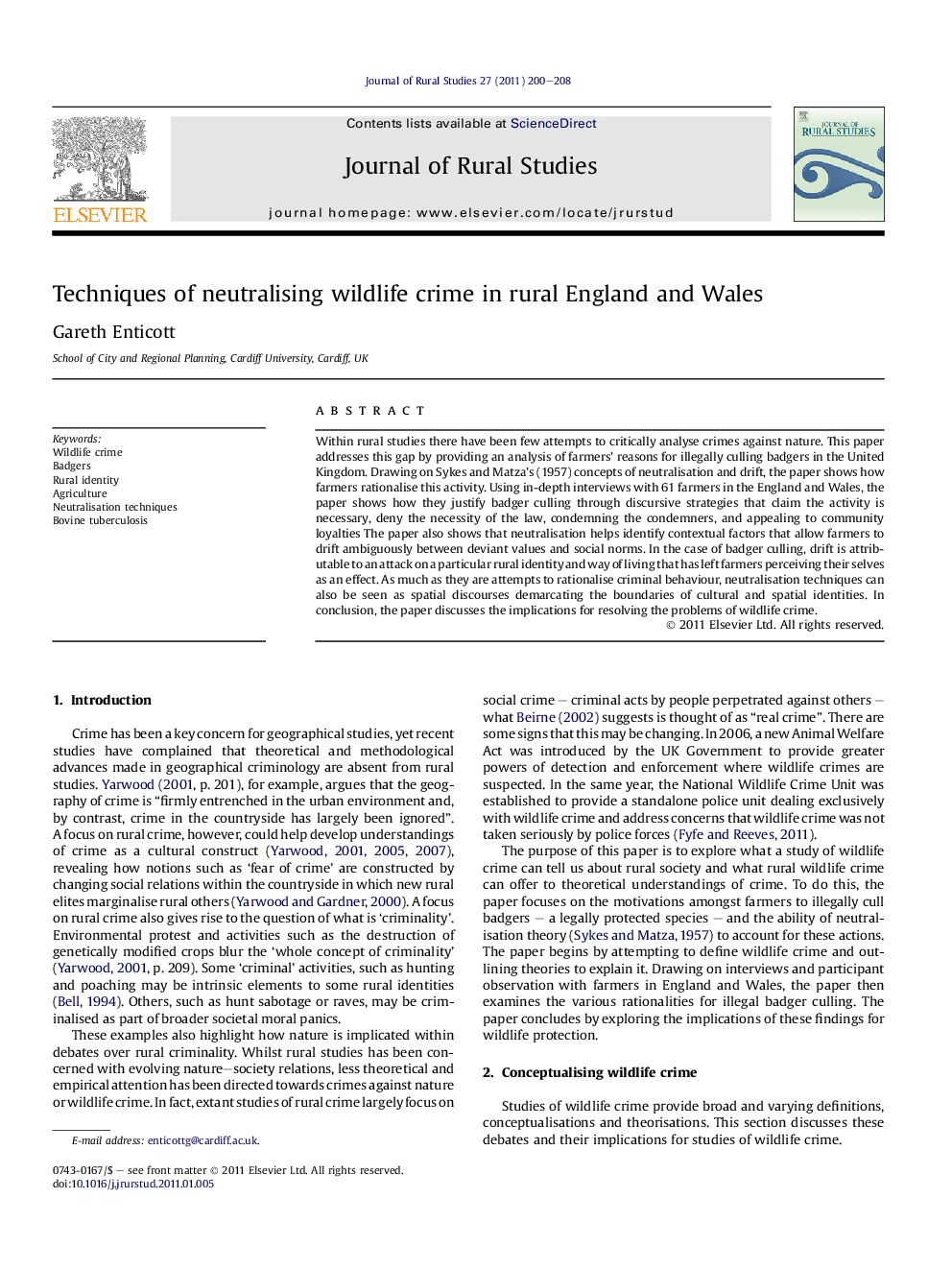| Article ID | Journal | Published Year | Pages | File Type |
|---|---|---|---|---|
| 92600 | Journal of Rural Studies | 2011 | 9 Pages |
Within rural studies there have been few attempts to critically analyse crimes against nature. This paper addresses this gap by providing an analysis of farmers’ reasons for illegally culling badgers in the United Kingdom. Drawing on Sykes and Matza’s (1957) concepts of neutralisation and drift, the paper shows how farmers rationalise this activity. Using in-depth interviews with 61 farmers in the England and Wales, the paper shows how they justify badger culling through discursive strategies that claim the activity is necessary, deny the necessity of the law, condemning the condemners, and appealing to community loyalties The paper also shows that neutralisation helps identify contextual factors that allow farmers to drift ambiguously between deviant values and social norms. In the case of badger culling, drift is attributable to an attack on a particular rural identity and way of living that has left farmers perceiving their selves as an effect. As much as they are attempts to rationalise criminal behaviour, neutralisation techniques can also be seen as spatial discourses demarcating the boundaries of cultural and spatial identities. In conclusion, the paper discusses the implications for resolving the problems of wildlife crime.
